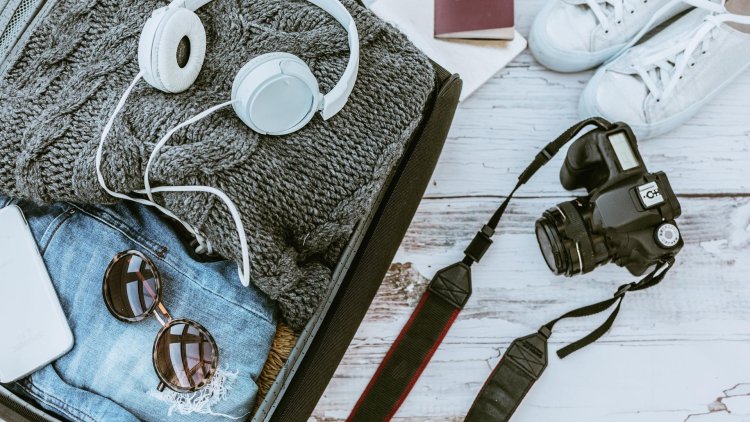Traveling is an exciting experience, but it can be marred by unfortunate events like theft. If your personal belongings are stolen while on vacation, it’s crucial to handle the situation promptly and efficiently. Here’s a step-by-step guide to help you navigate this challenging scenario, ensuring you recover as much as possible and prevent further issues.
Stay Calm and Assess the Situation
Stay Calm
The first step when you realize your belongings are stolen is to stay calm. Panicking can cloud your judgment and make it harder to take effective action.
Assess the Situation
Take a moment to assess what has been stolen and where it happened. This information will be crucial for reporting the theft and recovering your items.
Report the Theft to Local Authorities
File a Police Report
Visit the nearest police station to file a report. Provide detailed information about what was stolen, where it happened, and any potential suspects or witnesses. Request a copy of the police report or the report number, as you will need this for insurance claims and other follow-ups.
Contact Local Tourism Office
In some locations, local tourism offices can assist with the process of reporting theft and may offer additional support or advice.
Notify Your Embassy or Consulate
Contact Your Embassy or Consulate
If you are traveling internationally, contact your embassy or consulate. They can provide assistance with replacing stolen travel documents, such as your passport, and offer guidance on local procedures.
Provide Necessary Documentation
You may need to provide a copy of the police report and proof of your identity to the embassy or consulate. Be prepared to follow their instructions to expedite the replacement process.
Secure Your Financial Accounts
Report Stolen Credit or Debit Cards
Immediately contact your bank or credit card company to report stolen cards. They will block the stolen cards and issue replacements. Monitor your accounts for any unauthorized transactions.
Notify Your Insurance Company
If you have travel insurance, report the theft to your insurance company as soon as possible. Provide them with the police report and any other required documentation to file a claim.
Replace Essential Documents
Get a New Passport
If your passport was stolen, you will need to get a replacement. Contact your embassy or consulate to initiate the replacement process. They will guide you through the necessary steps and documentation.
Replace Other Stolen Documents
Replace other important documents such as driver’s licenses, travel visas, and health insurance cards. Check with relevant authorities or institutions for instructions on how to obtain replacements.
Inform Your Accommodation
Notify Hotel or Accommodation Management
Inform the management of your hotel or accommodation about the theft. They may be able to offer assistance or advice and can help ensure your belongings are secure going forward.
Check for Security Footage
If the theft occurred within the accommodation, inquire if there is security footage that might help identify the thief or recover your belongings.
Protect Your Identity
Monitor Your Credit Report
Keep an eye on your credit report for any signs of identity theft or unauthorized accounts opened in your name. Consider placing a fraud alert on your credit file if necessary.
Notify Relevant Authorities
If your personal information, such as Social Security numbers or driver’s license numbers, were stolen, notify the relevant authorities to prevent identity theft.
Take Preventive Measures for Future Travel
Use a Money Belt or Hidden Pouch
To prevent future theft, consider using a money belt or hidden pouch for your valuables. These are less likely to be targeted by thieves compared to traditional wallets.
Keep Copies of Important Documents
Make copies of your passport, travel insurance, and other important documents. Store these copies separately from the originals in case of theft.
Avoid Flashing Valuables
Be discreet with your valuables. Avoid displaying expensive items or large amounts of cash in public areas.
Seek Support and Advice
Contact Local Expatriate Groups
Local expatriate or travel groups may offer additional support and advice on dealing with theft and recovering your belongings.
Consider Legal Advice
In some cases, you may need legal advice to navigate complex situations or disputes with insurance companies or local authorities.
Reflect and Learn from the Experience
Assess Your Travel Security Measures
Reflect on the theft and evaluate your travel security measures. Learn from the experience and make adjustments to better protect yourself in the future.
Share Your Experience
Consider sharing your experience with fellow travelers to help them avoid similar situations. Providing insights and advice can contribute to a safer travel community.
Experiencing theft while on vacation can be distressing, but by following these steps, you can effectively manage the situation and minimize the impact on your trip. From reporting the theft to securing your financial accounts and replacing essential documents, taking prompt and organized action is crucial. Remember to stay calm, seek assistance from local authorities and your embassy or consulate, and take preventive measures to safeguard yourself in future travels.
By handling the situation methodically and learning from the experience, you can recover from the theft and continue to enjoy your travels with greater awareness and preparedness.
FAQs




















